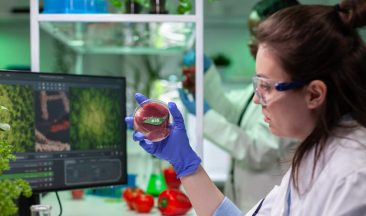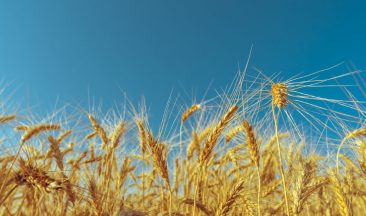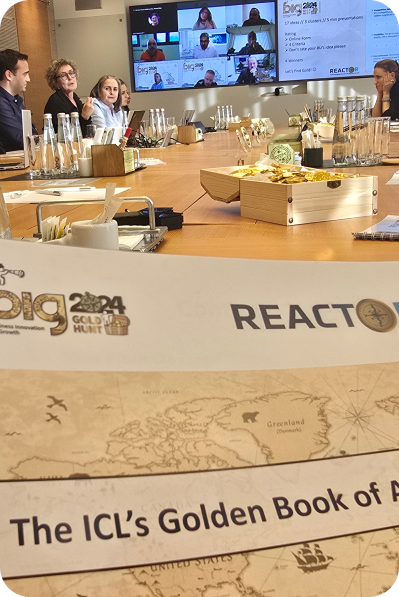Consumers around the world are clamoring for new meatless protein sources and several global trends driving the demand: the need to feed a growing population sustainably coupled with an increased demand for more healthful foods.
Many people are reducing or eliminating their consumption of animal products to reduce environmental impact, improve their health, or adopt a more sustainable lifestyle. Plus, the world’s growing population requires more and more food, while land for agriculture is limited.
Vegetable-based proteins require fewer resources compared to animal-based ones. Additionally, the cultivation of certain high-protein crops has a positive impact on soil quality due to inherent nitrogen-fixing properties.
All these factors lead to a rise in consumers seeking alternative food options that have revolutionized the market for alternative proteins. To counterbalance economic and social pressures driving demand for meatless protein sources, it is crucial for companies like ICL to drive innovation and develop sustainable alternatives that diversify the global protein supply.
Making plant-based proteins delicious
In the search for alternative foods, consumers want to make a conscious choice without sacrificing quality or experience. Food preferences vary widely worldwide, requiring texture and mouthfeel to be customized by region.
With a network of talented entrepreneurs, multinational food companies, and Food Tech startups, ICL offers novel food technologies to meet these modern needs. ICL’s alternatives in the dairy, seafood, poultry, meat, bakery, and beverage segments offer a taste profile that appeals to different varieties of consumers.
Our focus is on finding and creating Food Tech solutions that improve the quality and culinary experience of plant-based proteins. This includes:
- Proteins with unique nutritional profiles.
- New and more economic sources of neutral-tasting proteins.
- Proteins with a functional edge like improved gelling, binding, or foaming behaviors.

ICL is also seeking novel food extraction technologies and natural ingredients. For example:
- Ingredients that leverage the natural properties of phosphates.
- Co-ingredients and adjuvants for phosphates, improving stability, taste, and texture.
- Texturizing agents that increase succulence at different temperatures as well as water-binding in processed food.
- Chelators and natural preservatives.
A Sustainable Solution for a Global Economy
Alternative proteins are diverse and come from a variety of sources – and food manufacturers can tap into this diversity to find right-fit proteins for their end application. These include:
- Proteins from plant-based and aquatic crops. These can be easily adapted into everyday life with the production of meat alternatives that mimic the texture and taste of their meat-based flavors. They can be prepared in a similar way, lowering the learning curve and barriers to adoption.
- Fermentation-derived proteins. Derived from yeast, fungi, and bacteria, these are meatless solutions that produce a variety of vegan proteins from diversified substrates such as sugar or agricultural side streams.
- Meat cultivated from animal cells. These proteins taste and perform virtually identically to the original version, with minimal land requirements and lower environmental costs.
- High protein fruit and vegetable varieties. These can provide high levels of vegan proteins with minimal transformative processing and include nuts, peas, and jackfruit.
Health Benefits of Alternative Proteins
One of the major drivers behind these alternative proteins is the health benefits they offer. These include:
Better Digestion
Meatless protein sources such as vegetables, cereals, legumes, seeds, and nuts contain high amounts of fiber that improve digestion. Adequate consumption of dietary fiber is essential for a healthy diet.
Improved Metabolism
Metabolism is the process in which the body turns food into energy. Eating a diet high in fiber helps to boost metabolism. The body tries to digest insoluble fiber and, in the process, expends more energy. The more energy the body must put into digestion, the more the metabolism is accelerated.
Supports Immune System
Plants as effective mediators provide a unique blend of vitamins, minerals, antioxidants, and other components that cannot be achieved from other food sources. These nutrients help to keep cells healthy so the immune system can work at its best.
Younger Generations Lead the Way
According to Fiona Dyer, a consumer analyst at GlobalData, “The shift toward plant-based foods is being driven by millennials, who are most likely to consider the food source because of lifestyle and environmental impacts when making their purchasing decisions.”
Millennials are demanding sustainable solutions to conventional protein products, and many are adopting a “flexitarian” diet: one which is mostly meat-free but occasionally incorporates animal proteins. The popularity of this lifestyle and diet amongst this population continues to grow.
Flexitarian Diets Growing in Popularity
“Flexitarian” is a term first coined in the 1990s to describe a flexible approach to eating, centered on the consumption of plant-based foods without rigid rules around eating meat and other animal products.
A flexitarian diet is an approachable option, giving meat eaters a way to reduce their consumption of animal proteins without feeling a drastic lifestyle change. Many flexitarians are reducing their meat consumption through “Meatless Mondays” or “Raw Until 4”. These fun, enjoyable movements give those who are hesitant to define themselves as vegan or vegetarian an opportunity to eat healthier and lower their impact on the environment and food systems.
More on the subject:
Shaping Food Trends of 2024 – Sustainability, Diversity and Wellness
Trends Shaping The Future of Alternative Proteins
Food Tech – The Next Frontier
ICL’s Commitment to the Future of Food Innovation
As the world of food rapidly changes and evolves, ICL makes a major impact by producing ingredients from a variety of meat alternatives and an array of sources. We recognize our responsibility to help create innovative, sustainable food solutions, which is why we work closely with the food technology industry to support the development of alternative proteins worldwide.
The result: making processed foods that are healthier, more affordable, and better-tasting for consumers around the world to enjoy.













